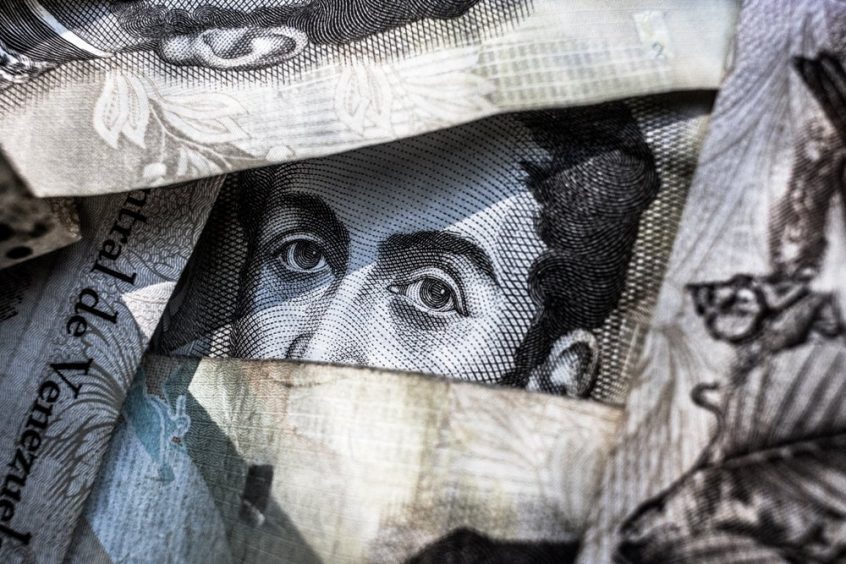Emergency funds are there to, well, fund in case of emergency. If your car breaks down or you lose your job or the hot water heater goes out, you have money in that emergency fund to be able to cover the expenses.
Well, theoretically.
Emergency funds should be the equivalent of three to six months of your regular expenses, tucked safely away in a savings account, untouched unless there’s an emergency. So it’s disconcerting to realize that the majority of Americans have less than $500 in savings. How could that possibly be? We know that so many things can occur completely outside of our control—what is stopping us from saving money to make sure we’ve got a safety net when bad things happen?
If you’re having a hard time saving, and you find yourself inside of that 63% with too little of a cushion, let’s identify what’s holding you back and how you can fix it:
- No plans. Do you need a budget? Almost certainly. But more than anything, you need to write your situation down. Get started by visualizing the whole picture—as humans, we process things more effectively when we can see them in front of us. So write it all down somewhere safe: your debt, your savings (or lack thereof), your expenses each month, which expenses are non-negotiable and which can be tossed if necessary. Once you have your money situation in front of you, it becomes less scary and much easier to understand and start planning around.Then it’s time to actually make plans. Short-term, what are your goals? How much debt do you want to pay off/money do you want to save/expenses do you want to shed in the next three to six months? How about in a year? Five years? What bills do you want paid off? When are you going to hit that emergency fund target? Be realistic based on your current financial situation, and then write down a date, whether that’s 10 days, 10 months, or 10 years in the future. (Here’s a good place to start creating a financial plan!)
- No discipline or structure. Here’s the thing: you can’t just make the plan. Now you have to stick to the plan:
- Automate your savings or investing plan so money comes out automatically any time a purchase is made or a deposit goes into your account. Always pay yourself first.
- Automate your bill paying. Set your bills to be paid automatically at the same time every month so that you can’t spend money you don’t have on things you don’t need.
- Use a cash system for personal money. Sure, have fun! Go get drinks or dinner! But after you make your plan or budget, pull out in cash only what you can afford after your savings and debt expenses. That cash has to last til your next pay period…blowing it early makes you more careful the next time around.
- Set up goals and plan for victories. Did you pay off a bill that has been bugging you for months? Did you hit your three-month savings goal early? Treat yourself, but plan for it in advance. No celebration dance or making it rain extra cash everywhere. Instead, plan a small budget to reward yourself for hitting your goals by being disciplined.

- Your expectations are too high. But Danielle, you say, I can’t put 10% of my paycheck away each month. I can’t save $100 every pay period. I can’t get to a three-month emergency fund in a year. Okay, maybe you can’t. But that is no excuse for the opposite: It’s hopeless, so I guess I just won’t save anything at all. People can come up with a million excuses to not start, but thinking that there is a large barrier to entry when it comes to saving money is not even remotely a good one. You can start right now. If you have $5 in your account that you were going to spend on something else, put it in a savings account. Other plans include saving $1 a day, saving dollars cumulatively by day ($1 today, $2 tomorrow, $3 the third day, and so on), saving $10 each week or two weeks…whatever can work for you.Do you want to get to three to six months of savings? Yes. But do you first need to get to $500 or $510? Yes. And do you first need to start creating the good habit of saving money in the first place, no matter what amount it is? YES. Know your money situation, write down your plan, and start. Start now, start small, but just start.
- Crippling debt. Sometimes you’re doing everything you know to do and still don’t have two nickels to rub together when all the bills are paid. Debt is so, so exhausting. But ask yourself what your options are: can you call your credit card company and explain the situation? Can you get a lower interest rate or minimum payment amount? Can they put your account payments on hold for a couple of months so you can try to save that $500 in case of emergency?Many people don’t realize—largely because of historically awful debt collection practices—that they can call the companies where they owe money and try to negotiate terms that work better for them. Hardship forms can be filed, and some debt (like medical debt) can be paid in very small amounts, or can sometimes be written off completely based on your financial situation. Rarely are there “no more options.” Start making calls where you can to see where these companies can work with you.
Above all, stay on top of your financial education. Don’t be embarrassed if you find yourself in a difficult money situation or because you don’t know how to fix it. Financial literacy is not a thing we typically grow up learning about in order to make us effective money handlers as adults.That’s why we educate people about good money practices. Be a constant learner and fight for that financial freedom in earnest!

